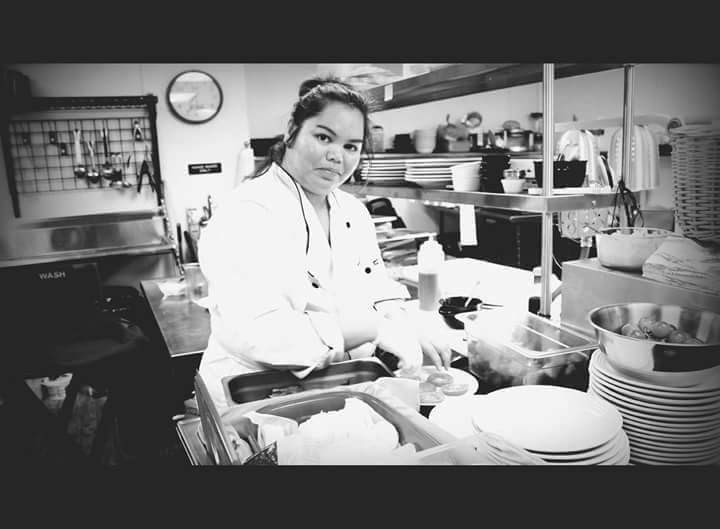
Times have slowly been changing for food trucks and small catering companies in Tyler. A large part of that has been through the work of Kat Santos, a seasoned chef and caterer with over 25 years of hospitality experience, and owner of Foodworx Kitchen, a nonprofit commissary that helps small businesses get off the ground. Kat Santos’ endeavor to bring more opportunity to the local food industry includes a mix of food, art, education, culture, and community.
This interview has been edited for clarity and length.
Tell me about FoodWorx’s mission.
Foodworx Kitchen is a nonprofit, community-shared kitchen and incubator. We offer commissary services to food truck operators, as well. We provide different kinds of job-skills training, food entrepreneurship, and community programming for adults and kids.
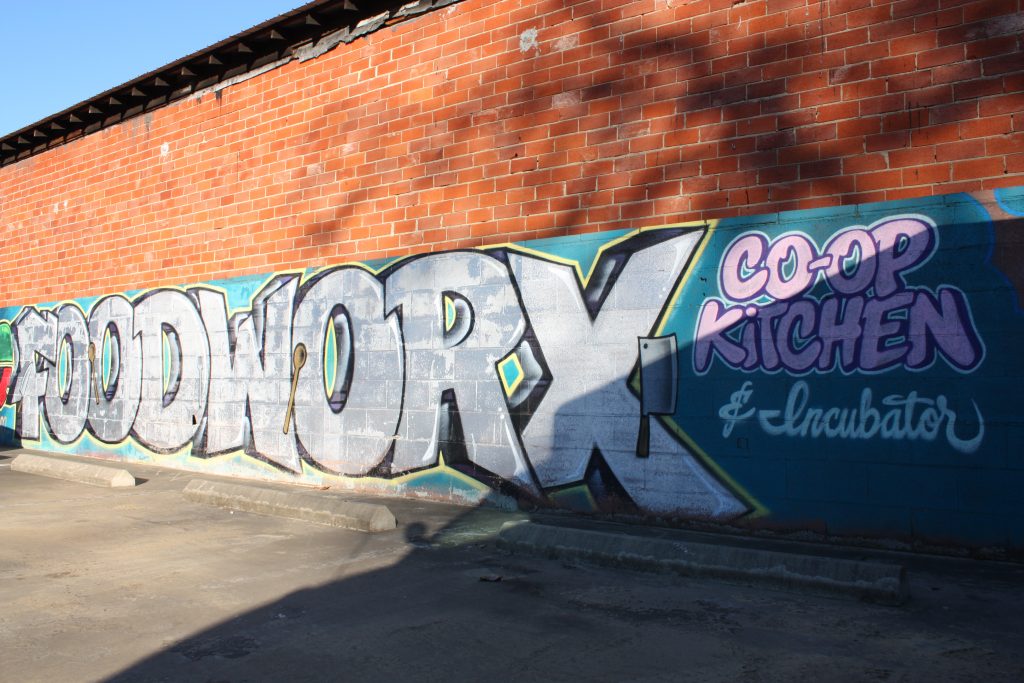
Talk about something you’re especially proud of, one big success so far.
When we first talked about it, I was not officially open, and now we have so many businesses we help: Cupcake Avenue, Hug-Dawgs, What About Kabob, Bee’s Knees, Blessed Hands BBQ, El Señor de los Ostinones, Madras Pimento Cheese, Vic’s Scratch Kitchen, Tacorriendo Tacos, A Matter of Taste and a few other caterers. Probably every single truck has its own success story, because every person that comes through here with their small business has its own set of challenges.
Vic’s Scratch Kitchen was the first food-business operator we worked with. She started with her meal-prep services, and now she does her signature cookies and things you see at the farmer’s market.
What’s been your biggest frustration or disappointment so far?
There isn’t direct, clear communication between the city, county, and NET Health (Northeast Texas Public Health District). I say that with respect to everybody’s positions. I think we need to come together as a collaborative effort and make it easier for new small businesses to come in.

[There are] local ranchers who have secured everything possible regarding their [state-required] permits and licenses, but they still can’t get a local permit because of NET Health’s restrictions.
Also food trucks. We have food trucks, [but] what are we supposed to do, who handles it — NET Health, the city, or the county? They get their permit [but] there are restrictions. They can’t go anywhere in the city to park. There’s certain areas they are not allowed. Then you have the big confusion: who owns the square, city or county? They both do, so you actually have to go to both places to get permission to sit on that. If you are parked on [the square], you have to be with an event, if you are not parked there, you have to get the permission from the commissioner’s court.
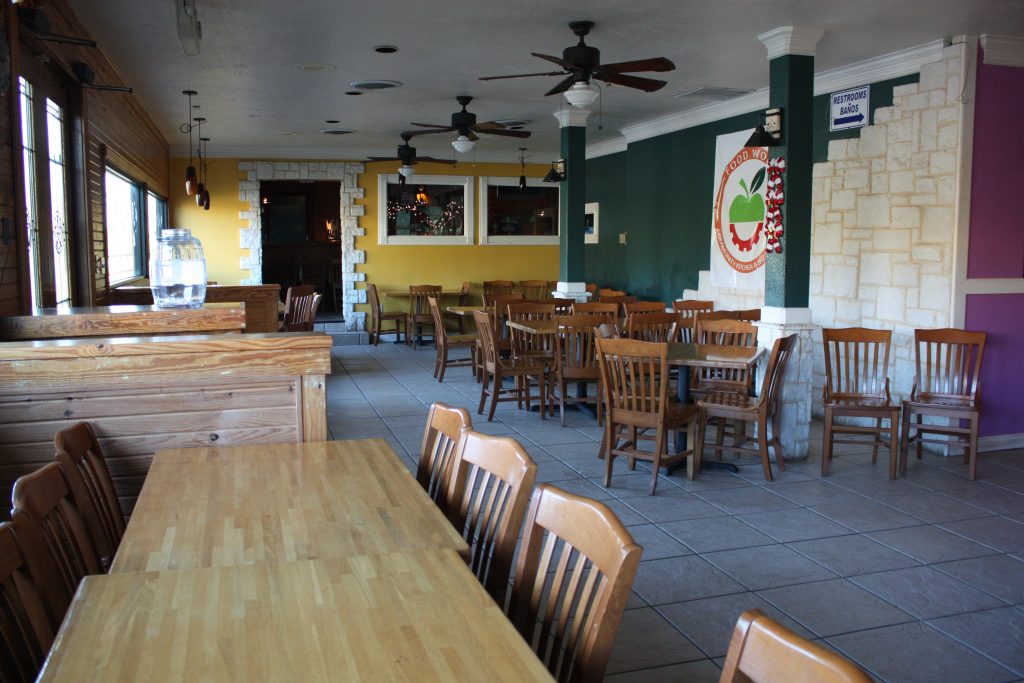
How did you get involved with food? What was your own journey in this work?
I have a unique background. I was born and raised in Guam with a European mother. So I had opportunity to be exposed to a lot of different cultures and food from around the world. We had our own fine dining restaurant on the border of Canada and Washington. We served American and European cuisine, black and white table service.

By the time I was 14, I had the opportunity to go to Europe and actually work for my uncle, who owned his own hotel and restaurant in Germany on on the Rhine River.
I had the opportunity to travel to Switzerland, Belgium, and South Africa, all before I was 21. From early on, I seized opportunities to learn something new, to broaden my horizons. Adventure was always in me, and always ended somehow connected to food.
After I graduated college here in the U.S., I went back to the islands and worked for Hyatt Grand Regency, so most of my life I was always in the hospitality and culinary industry.

I was actually a private chef for a company out of Las Vegas. We took care of one of the biggest construction companies, so I traveled with them on their site to take care of their crews, superintendents, bosses, everybody.
My mom married a Texan and that’s how I got here. I had the flexibility to work with some other chefs here and start mentoring the culinary students in the schools. That’s how I ended up traveling throughout East Texas and still had the chef things that I did. When I came here to Tyler, I became one of the executive sous chefs for Cascades.
People ask me is why I don’t cook much. I actually do [but] through the hands of others more.
What made you decide to start Foodworx?
Part of what I wanted to do here is have a training program to sustain all these restaurants [that] keep closing. So now we are having more restaurants, more things happening, but there is nothing to sustain it. These restaurants bring in their own employees, relocating them. Why can’t we train our own community of people to have a sustainable job?
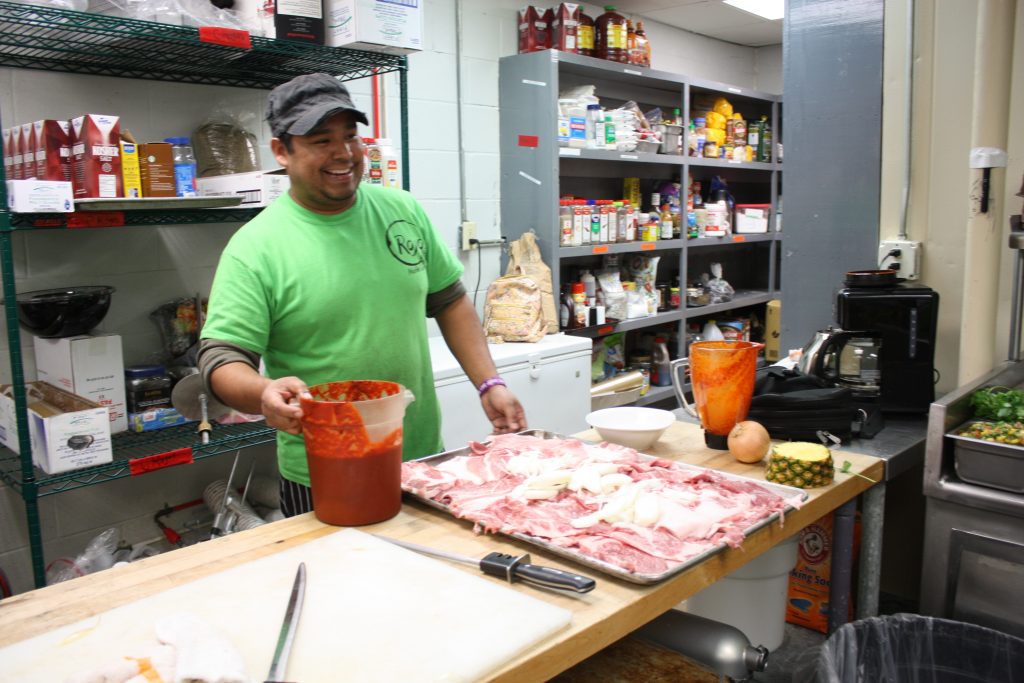
We don’t have a temp service for hospitality. As big as Tyler is, we don’t, which I’m very surprised. We have temp service for trade, clerical, administrative, but not necessarily for restaurants. It literally is word of mouth, that this so-and-so over here will call to say, “Hey, do you have anybody that can work, or do you know anybody that can work?” I’m almost a pre-screener.
What is a typical day at Foodworx?
Tacorriendo, they are a lunch wagon, they come in first thing in the morning. We are open to public from 6-11 a.m. for breakfast. We host brunch sometimes and our in-house entrepreneur, EL Señor Ostinones, has a seafood market on weekends and cooks up best, fresh seafood. We do pop-up dinners and community dinners, too. This month, we have Puerto Rican dinner on Feb. 10 and German dinner Feb. 21. Food Worx space is available for small gatherings, luncheons, workshops and catering. We use these opportunities to raise funds community programing and for the training we give.
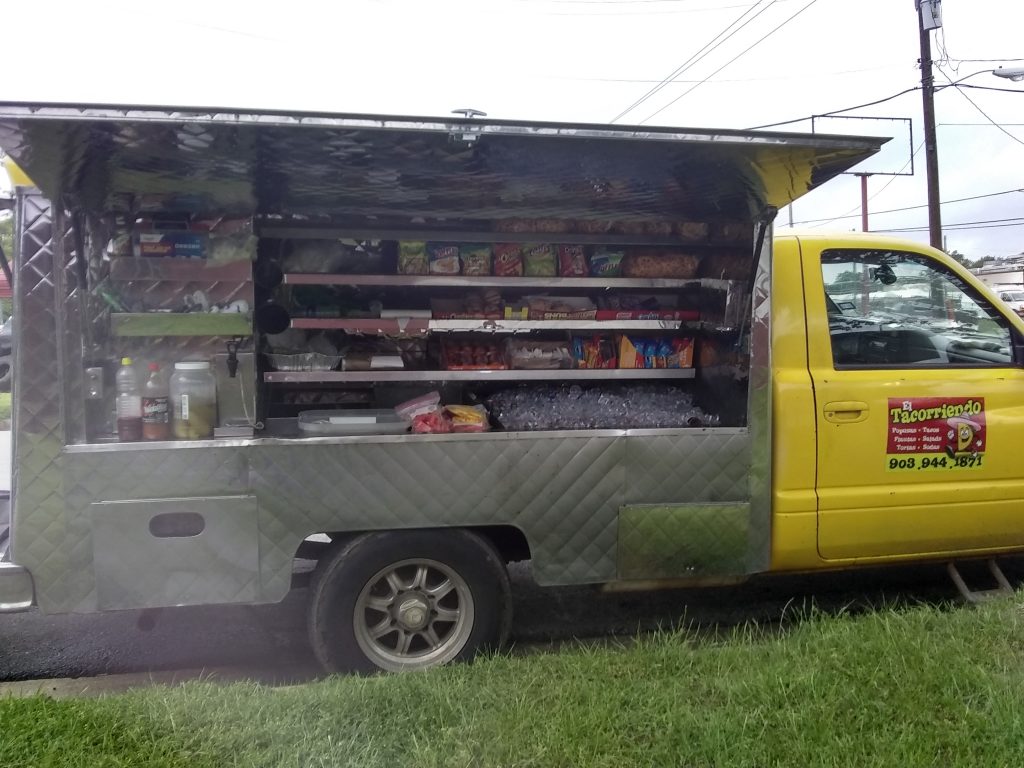
The vending services we provide saves them cost and other extra services, like storage. It’s not cheap, but it’s more cost-effective for them when they are first starting out because they already put a lot of money into their trucks. Building the base here in East Texas for food trucks is not that easy because we’re a city, but we are still called rural. So you still have to start building the bases of your people, your following, whether it’s going to be in Tyler or Longview or wherever. They are still in the incubate stages; everybody is on a different level.
So whether I’m working with the food entrepreneurs here or if I have a temporary service coming in, like a cottage baker, [who] wants to bake off 100 pies, I schedule them.
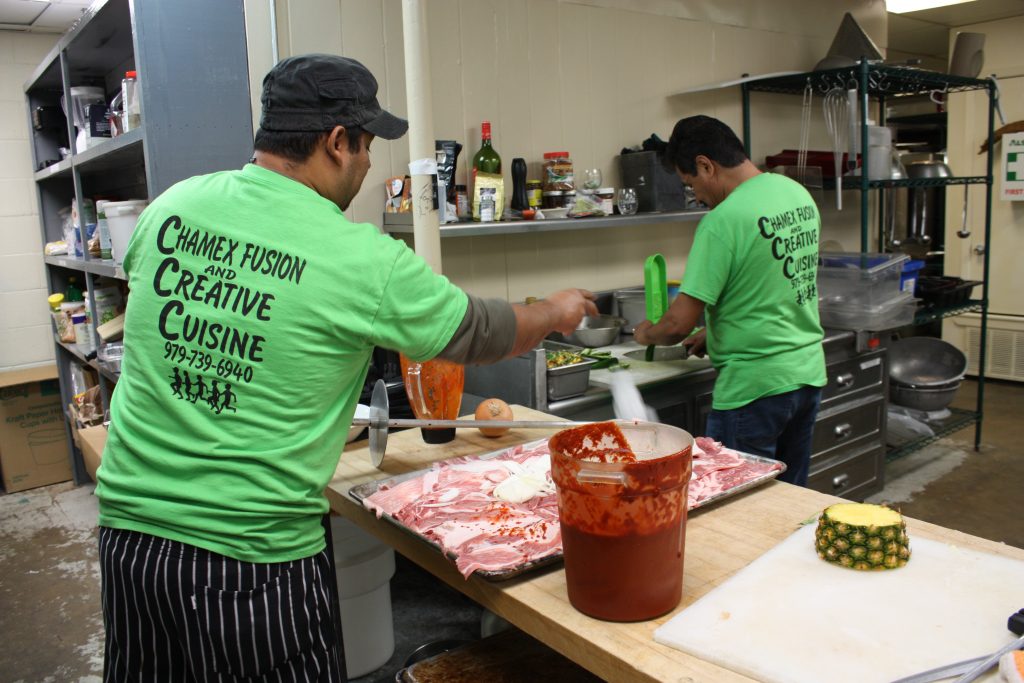
That sounds like a lot of scheduling, and a lot of different pieces you have to put together. Is it just you who schedules, or have you managed to get some staff?
No, I do most of it. I’m here everyday right now. It’s not profit for us, so the revenue that comes from the food trucks or any of the food entrepreneurs renting spaces goes into programming and development, so we can do those free events you see posted. I can help the community try something different and let them know there is a space that is affordable. “Talk to Kat, she’ll work with you.” You know, there is not an activity center over on this side [of town], so we try to incorporate something a little bit different.
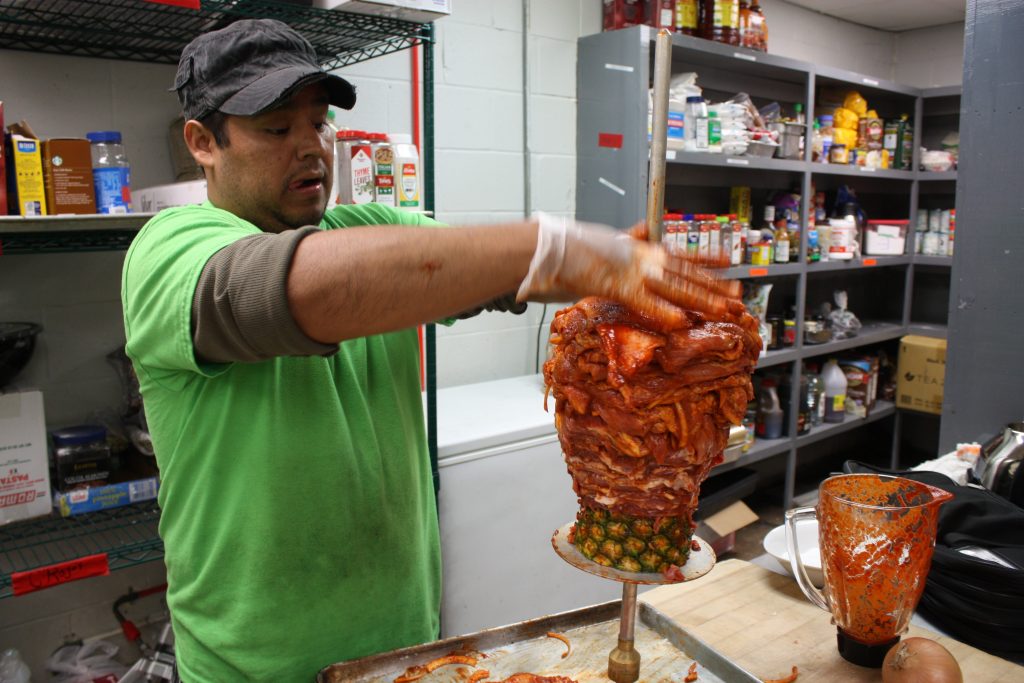
What [our clients] are getting is a lot of the free advice, workshops, job training, helping with the POS (point of sale) system, trying to make their business a little bit easier. We are actually set for job skills training. We have spoken to the JD, juvenile justice system, about helping at-risk youth have alternative vocation training.
We do Safe Serve (training) and we do food handling classes here. We also have two Latino chefs who are Spanish-speaking, so they’ll be able to work with the Latino community. I’ve helped numerous restaurants here on short notice to help get their employees ready, to get their certification. Foodworx offers the course in Spanish and English, as well as the test.
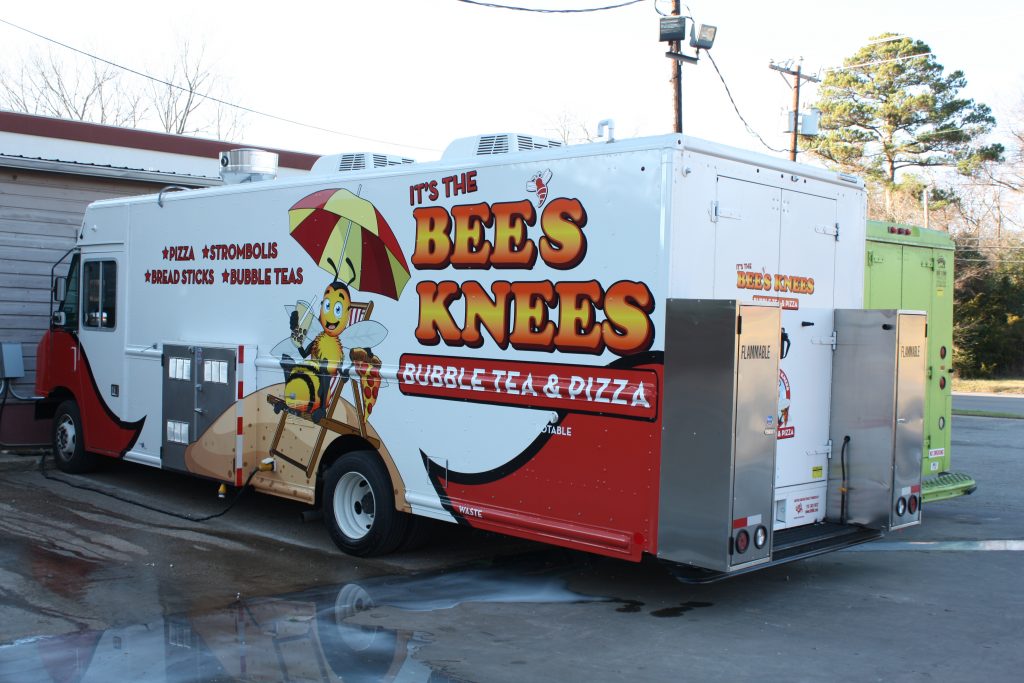
We decided to do an art class, starting off with only four kids. Now, last Sunday, we had 22 kids. We weren’t expecting a big jump. The art teacher is an elementary school teacher, she volunteers her time. Here on the north end of Tyler is hard. Extra activities for kids are out their budget. But we want to give opportunity to those who may not want sports. Foodworx is working on cooking classes, as they have been requested more and more.
What was your inspiration behind the murals? How does art fit into what you are doing at Foodworx?
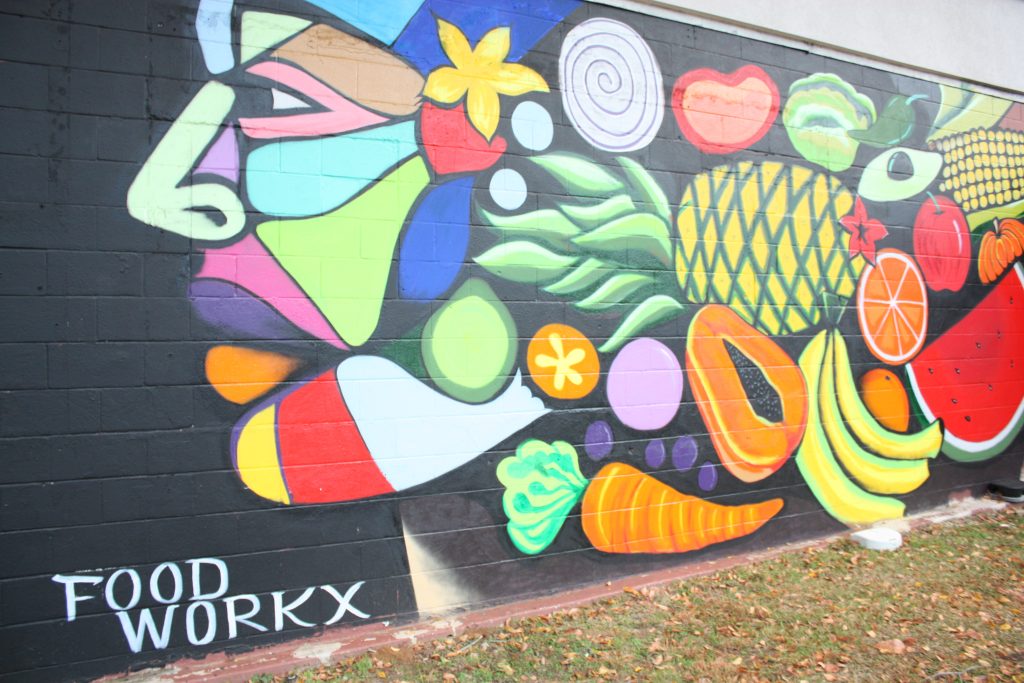
Because I think food is art, you can create anything you want out of food. I think both of them are hand-in-hand. [The artist is] local, he worked in the restaurant business so he knows what Foodworx is about.
If someone is interested in getting started at Foodworx, what are the first few steps they should take?
The first step is that you contact us at [email protected] or text kitchen. You can look us up on Facebook, too. We’ll send out a simple survey that kind of gives us some date of what you are aspiring to do, what are your simple needs and how we can fit in with you.
It is known that NET Health has stricter regulations for Tyler and Smith County. What have you learned that might be helpful for someone thinking of getting started in the food business?
To give them the real deal, its not an easy process here. When you have a NetHealth district like ours, they can create stricter regulations on the area and if there’s not enough of us to speak up about it, things just keep going that way. So it’s up to the people, if they want to see change, they have to come together to make that change. And the only way to do that is that we set forth, make that petition, make that to the council, put it to the city, the city makes those choices.
Unless somebody does not tell me or not inform me, then I think I’m doing a pretty darn good job. It is unchartered territory for everybody, for the city, for the county, for us. Getting that opportunity to blaze that trail is pretty darn cool.
Love what you're seeing in our posts? Help power our local, nonprofit journalism platform — from in-depth reads, to freelance training, to COVID Stories videos, to intimate portraits of East Texans through storytelling.
Our readers have told us they want to better understand this place we all call home, from Tyler's north-south divide to our city's changing demographics. What systemic issues need attention? What are are greatest concerns and hopes? What matters most to Tylerites and East Texans?
Help us create more informed, more connected, more engaged Tyler. Help us continue providing no paywall, free access posts. Become a member today. Your $15/month contribution drives our work.







